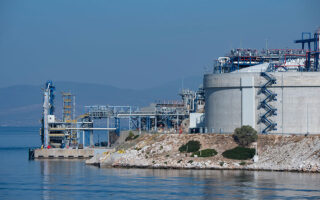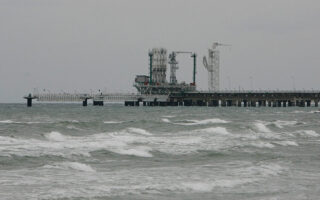Greeks to pay Bulgaria’s way
Sofia to charge other countries for the consumption of Russian gas through TurkStream

Bulgaria has found a strange way to increase its public revenues and support its natural gas and electricity consumers. In a surprise move, a law approved last Friday by the country’s parliament imposed a tax of 10.20 euros per megawatt/hour on Russian gas imported into Bulgaria or transported via Bulgaria to other countries, including Greece.
Through the new fee, according to the Bulgarian media, the country is expected to bring additional revenue of €1.2 billion per year into its coffers. This amount will come from charging the countries that are supplied with Russian gas from the TurkStream pipeline through Bulgaria, such as Greece.
Effectively, households and businesses in Greece, Serbia, Hungary, Austria, Romania and other Southeast European countries will be burdened with hikes in electricity and natural gas to subsidize Bulgarian consumers. The €10.20/MWh in natural gas translates into €20 for every MWh of electricity produced by natural gas, which in Greece is the main fuel used to generate electricity.
Greece imports 3.5-6 billion cubic meters of natural gas per year through Bulgaria. The additional cost for these quantities from the imposition of the new fee is estimated on an annual basis at approximately €360 million, an amount that will burden Greek consumers.
Although Bulgaria does not import natural gas directly from Russia, it remains an important route for the reduced quantities delivered by Russia to Europe from 2022. In an unusual move for the European context for the free movement of goods and services, it decided to impose a tariff by increasing energy costs in a number of southern European countries at the start of the winter season and while developments in the Middle East have sparked a new wave of increases and volatility in energy markets.
According to European media, the reactions of Serbia and Hungary were immediate. However, there has been no respective reaction from the Greek government so far, at least publicly.





